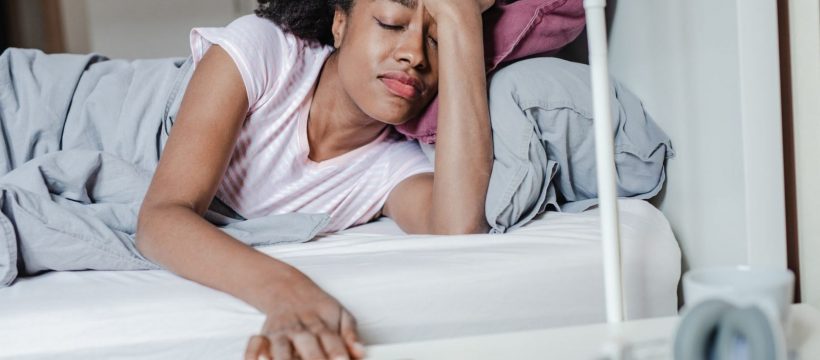The best way to sleep if you want to get rid of a hangover.
The warm embrace of your duvet is always desirable – but when you’re hungover, there’s nowhere else you’d rather be than in bed. You’ll be cured with another hour’s kip… right?
But is more sleep really the answer to avoiding the classic tired, confused and nauseated symptoms of a hangover?
Let’s look at the science: a 2017 paper from Nature And Sleep Science found that those who had less sleep after drinking tended to have more severe hangovers. In fact, it seems our bodies actually want to sleep off the booze, as those who drank the most slept for longer. Alcohol intake wasn’t related to hangover symptoms – rather the worst hangovers hit those who slept the least.
You may also like
Alcohol and sleep: what is the impact of drinking on the quality of your sleep
A 2021 paper published in the Journal Of Clinical Medicine also found that less sleep time after drinking meant worse hangovers. Participants who woke up a lot in the night, shortening their total sleep time, had worse symptoms of clumsiness, thirst, sweating, shivering, nausea and heart-pounding the next day.
“If you’ve just had a few drinks, sleeping for a solid eight hours can absolutely help you to reduce the severity of a hangover,” says Dr Mike Molloy, nutrition coach and founder of M2 Performance Nutrition.
“The first phases of sleep, or what we call “deep sleep”, will still be impacted, but the latter stages of REM will be less compromised. REM sleep has a restorative effect and increases focus and concentration the following day. So if you’ve had two or three drinks but slept for eight hours, you might be fatigued but still able to concentrate. Compared to two to three drinks with six hours sleep, when you’d be pretty useless.”

Sleep also helps with the detoxification process, Dr Molloy explains: “The pathways that are involved in detoxifying the body from alcohol and acetaldehyde – the compound produced when we break down booze – are intertwined with our sleep pathways. That means alcohol negatively impacts sleep and a lack of sleep will also slow the detoxification pathways from working optimally as well.”
How alcohol impacts sleep quality
So it seems sleep is the best way to avoid a hangover. The problem? Getting good sleep after drinking is virtually impossible.
“One of the most common myths is that drinking alcohol can help with falling asleep,” says Dr Molloy. “It is true that alcohol can help the body relax, but the most common effects of drinking are a delayed sleep onset, meaning it takes longer to fall asleep and it also inhibits the body from reaching the truly critical deep stages of sleep.”
You may also like
Keep making risky decisions? Your deep sleep (or lack of it) could be to blame
In the same Clinical Medicine paper, researchers reported that alcohol has a huge impact on sleep quantity and sleep quality. Those nightly wake-ups that lead to severe hangover symptoms were increased by drinking alcohol. And in the Nature And Sleep Science paper, a good night’s shut-eye mainly kept hangover symptoms like fatigue and sleepiness at bay, but researchers concluded that side effects like nausea and headaches still occurred regardless of time asleep.
Can napping cure a hangover?
The saviour may be napping. If you sleep during the day, the alcohol will likely have been processed from your body, allowing you to fall into a deeper, most restorative snooze. Sleep also speeds up the detoxification process, so you can rid the body of the alcohol byproducts more efficiently. “Essentially, you can ‘sleep off’ the hangover symptoms. Plus, if you had disrupted sleep quality and quantity due to alcohol intake, a nap can help you to “catch up” on the sleep that you missed from the night before,” says Dr Molloy.
“To be clear, it is not as good as an uninterrupted night of sleep without any alcohol, but it is still valuable. And if you’ve had a ton to drink, sleeping during the night or the day after absolutely will not save you in any way shape or form. I wish it would, but sadly that is not the case,” he adds.
The best way to cure a hangover is to avoid one. The best way to do that is to not drink, but if you’re partial to a glass of red on a Friday night or enjoy a gin and tonic on the weekend, Dr Molloy recommends shifting your drinking to earlier in the day “so you can process the booze out before your head hits the pillow, massively reducing the impact on the following day’s activities”.
Then there are the tried and tested tips of staying hydrated, topping up on electrolytes that are lost in the drinking process and eating carbohydrates with your drink to “stabilise blood sugar levels and calm the GI tract,” says Dr Molloy. If you catch us napping tomorrow, you know why.
For more nutrition tips and workout ideas, sign up to the Strong Women Training Club.
Images: Getty
Source: Read Full Article
